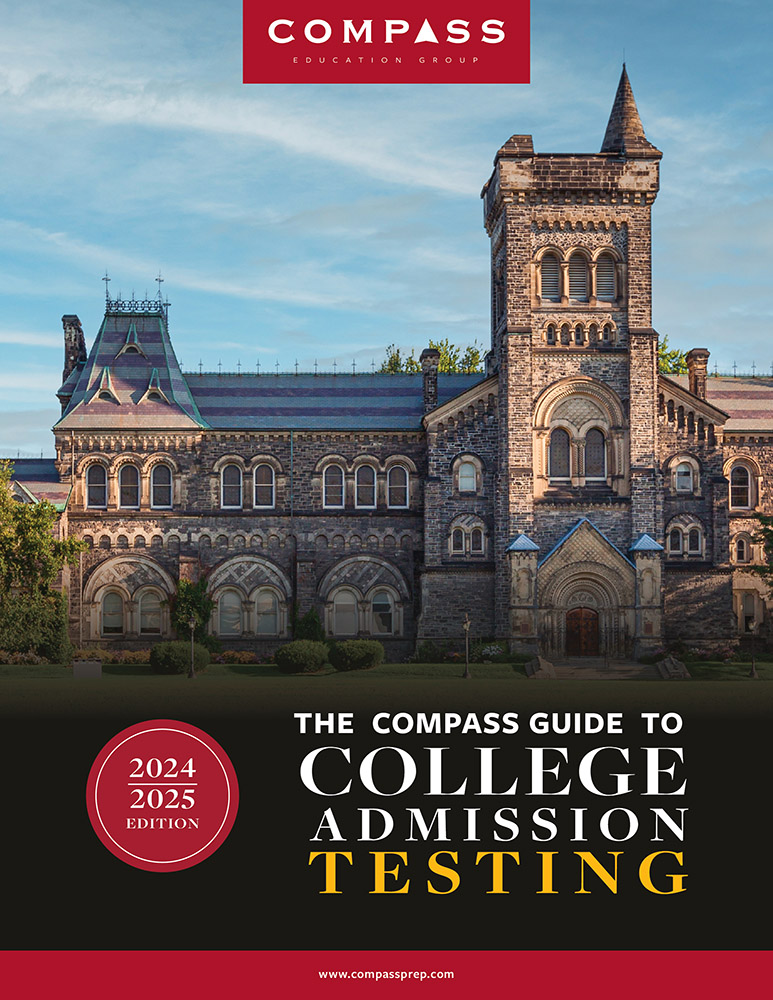
Last week, Compass hosted over 200 California college counselors for a series of lunch-and-learn symposia focused on the rapidly changing trends in college admission testing. The first event happened to take place the day after Cornell restored its testing requirement for the class of 2026.
Fortuitously, our featured speaker was Jonathan Burdick, who served as Vice Provost of Enrollment at Cornell University until last spring. Over a 40-year career at USC, University of Rochester, and Cornell, he built a track record of moving selective and super-selective schools toward more flexible and nuanced policies on testing.
Compass’s co-founder Adam Ingersoll led a forthright discussion about the trembling state of college admissions testing. Jonathan shared incisive commentary on the actual role of test scores in competitive contexts, the complications introduced by temporary test optional allowances, a frank assessment of how Cornell managed its decision to reverse course, and the likelihood of other colleges returning to an SAT/ACT requirement.
With the encouragement of participants in last week’s events, a reprise of the presentation is scheduled for May 21 at 1pm Eastern, as a webinar open to college counseling professionals anywhere. We will pick up and expand upon the themes in the following summary and facilitate a candid conversation. Please register in advance here.
If you are interested in booking Adam and/or Jonathan for a parent/student event or professional audience in your region, please email Adam or Jonathan directly.
In the meantime, here is a recap of last week’s topics that were discussed in richer detail, followed by a sampling of other ways Compass can work with you and your students.
KEY TAKEAWAYS FROM JONATHAN’S & ADAM’S DISCUSSIONS
The test-optional landscape is neither monolithic nor binary.
It is a highly fragmented field, with colleges on a spectrum regarding what is or isn’t preferred or recommended. Test taking numbers have returned to near pre-pandemic level, and participation rates correlate to income. Testing’s relevance and evaluation differ between pools of applicants to the same college in the same year, and yet colleges try to address all applicants with uniform policy language. This is as frustrating for colleges as it is confusing for applicants.
Data to help inform an applicant on whether to submit is often unclear or unavailable.
Recently inflated averages cause unhelpful distortions to published figures and lead to dubious implications and bad decisions by both applicants and readers. Students might fear a score is now “too low” to disclose while admissions officers might assume the applicant is withholding a score that is lower than it truly is. That leaves counselors feeling understandably irresolute about advising students. Will a reader assume nothing about the absence of a score when their college’s own research confirms that withheld scores are typically 100-150 points below their average? Colleges should therefore communicate how scores are used and what the ramifications of withholding may be.
Test optional ubiquity has introduced a strategic element to the process.
In Jon’s words: “Not submitting reflects strategy rather than relief from taking tests.” Some students have successfully gamed it while others have made tactical errors of “mis-withholding” would-be beneficial scores. Colleges have also leveraged test optional to their advantage, and there have been some cases where ethical boundaries have been tested.
Colleges are not intentionally misleading but can be intentionally opaque.
Internal admission practices may drift before external policy language gets updated. And the apparent “admissions advantage” for score submitters is often misunderstood, misinterpreted, and over-simplified, partly because of colleges being less than fully transparent.
Expiring test-optional policies should be tracked closely.
And, as Harvard and Caltech demonstrated, colleges can reverse course even before temporary policies expire. While Cornell honored its existing test optional policy for the class of 2025, it is also being honest with applicants that scores are recommended in the interim (except at their test-free schools). There were differing opinions about how useful Yale’s AP and IB options will prove. Which students stand to benefit from this newly available path and how should they be advised?
Conventional wisdom sometimes has it backwards.
For example, the notion that the very most selective colleges look for “reasons to deny” misses the mark. In actuality, schools with exceedingly low acceptance rates already know most applicants will be denied, so they in fact look hard for “reasons to admit”. Paradoxically, while even a near-perfect SAT score won’t stand out as reason alone to be admitted to such a school, a score slightly below their middle range will typically still be seen as affirming and “high enough” to admit if the rest of the application already fully supports that decision. Whereas colleges that are a bit less selective may be more intent on protecting their averages.
Informed speculation.
Which of the “Ivy Plus” schools are likely to move next? Will highly selective California schools such as Stanford and USC join Caltech in requiring scores even if it pits them against the UC test-free policy?
COMPASS RESOURCES FOR COLLEGE COUNSELORS
Testing Presentations For Your Students & Parents
Book a Compass keynote speaker for a private event in 2024–2025.
Digital SAT and ACT Practice Tests & Group Score Reporting
Take advantage of our hassle-free, fee-waived practice testing and exceptional data reporting.
Digital SAT and ACT Practice Testing Service for IEC Firms
Seamlessly integrate practice testing into your guidance and get notified as soon as results are available.
Small Group Test Prep Classes
Offer your students an affordable, comprehensive course taught by our most experienced and popular instructors.
College Counselors’ Testing Resource Library
Use and share Compass’s most frequently downloaded pages from our Guide to College Admission Testing.
To learn more about any of the above offerings please email outreach@compassprep.com.

